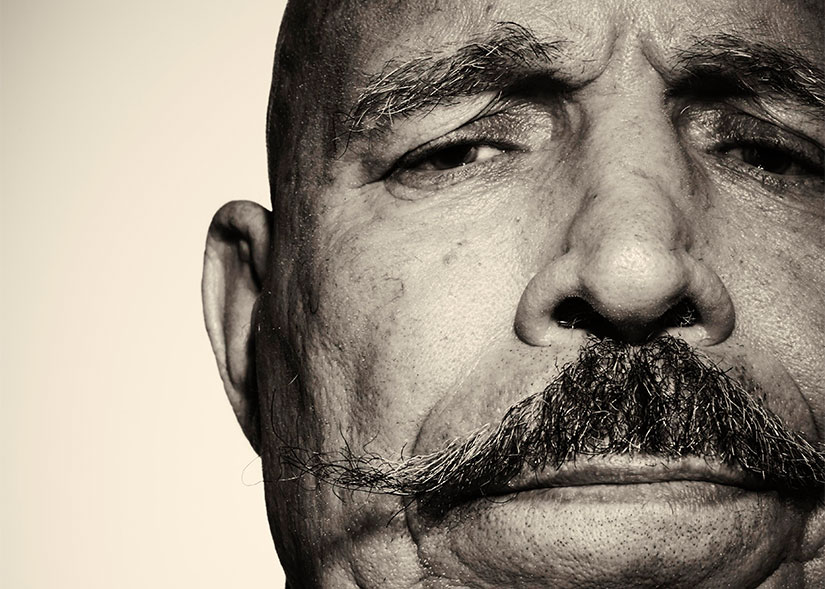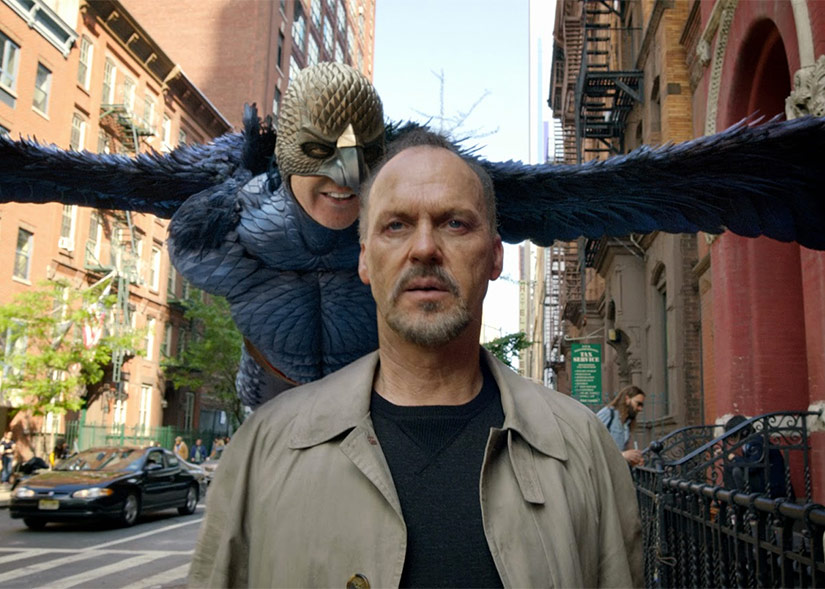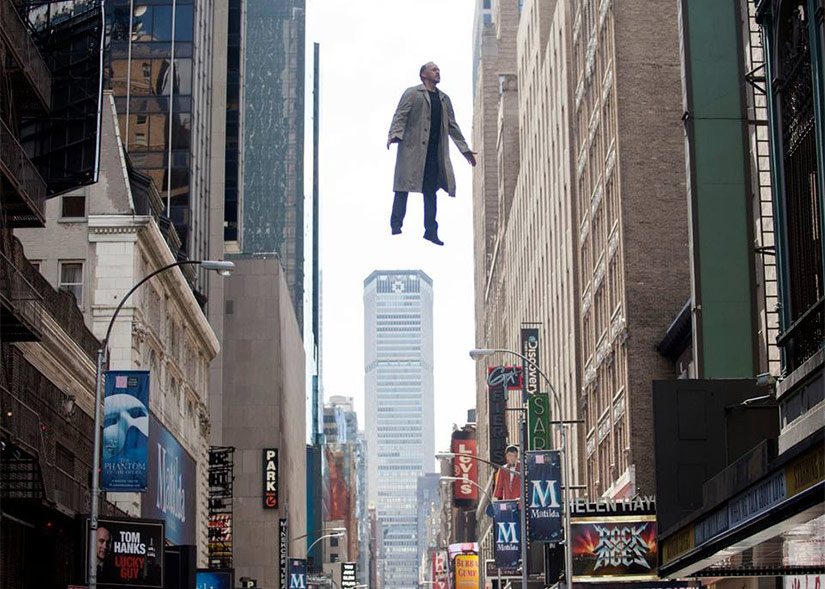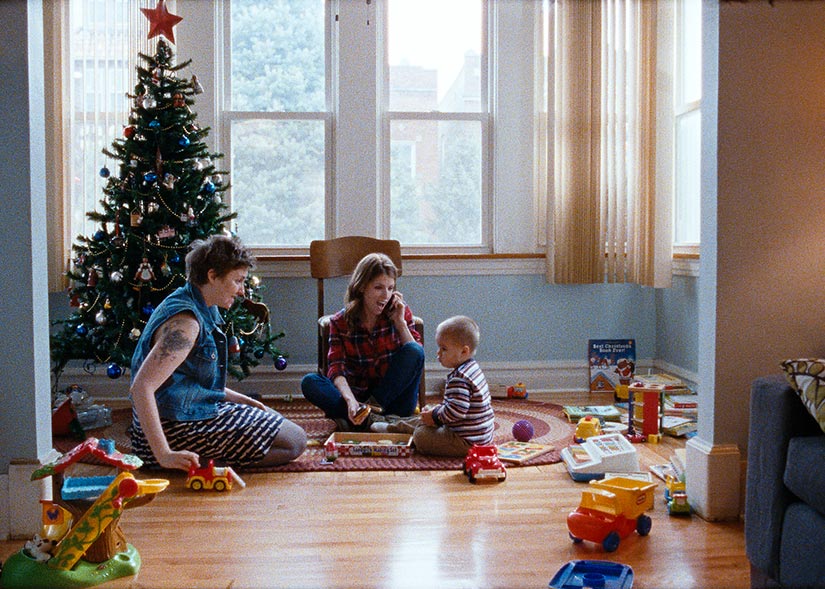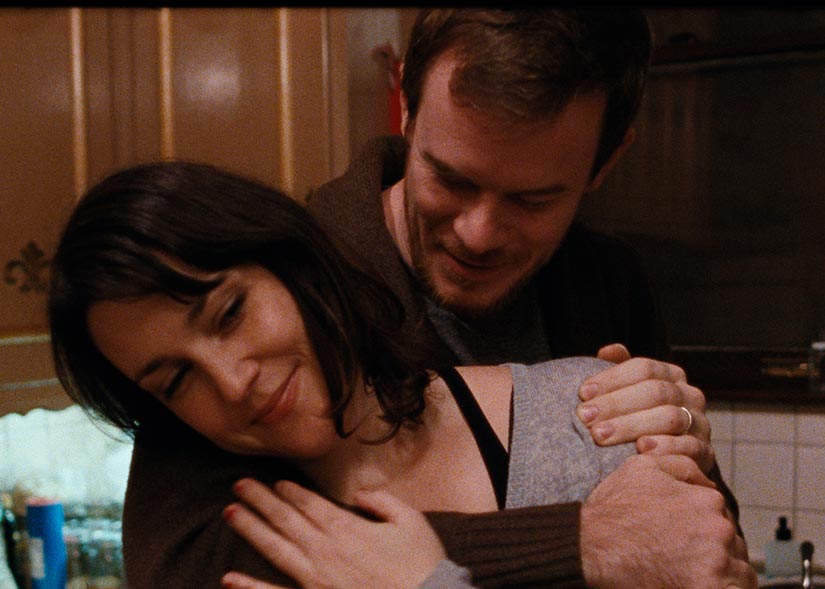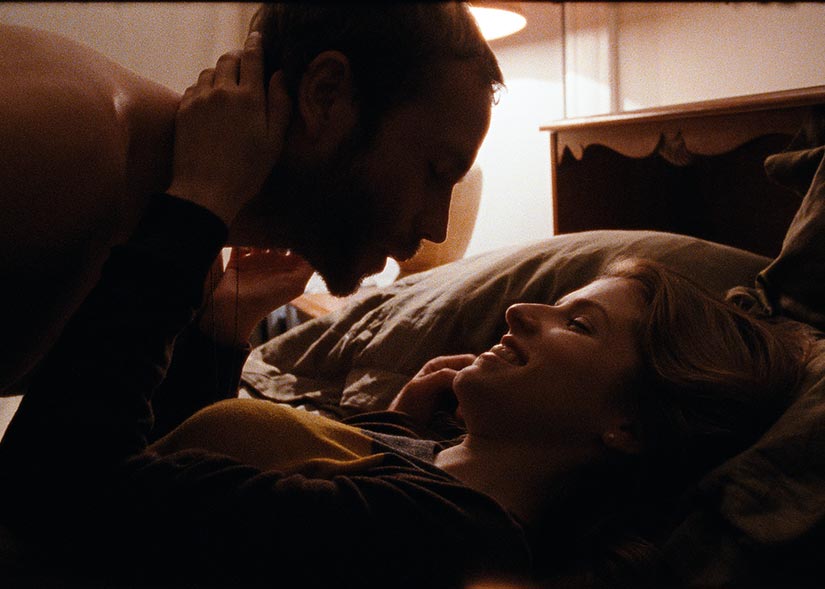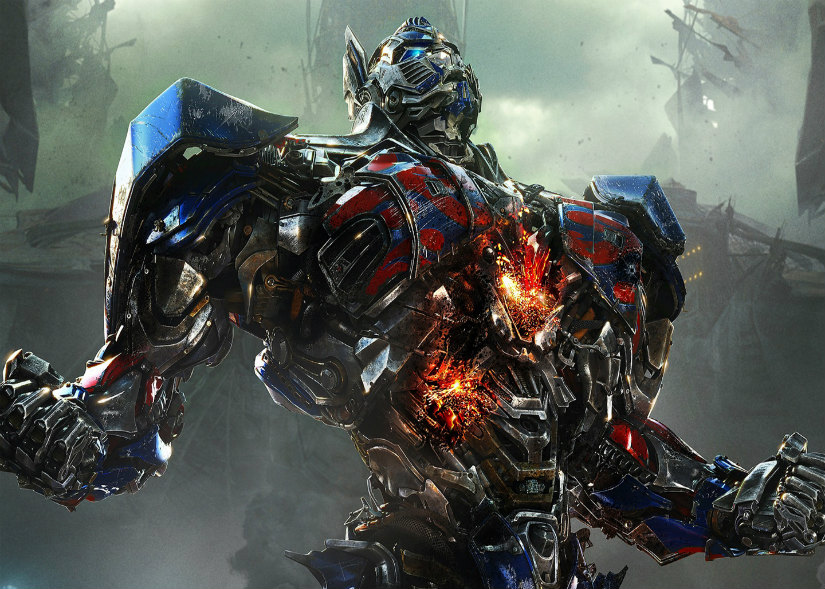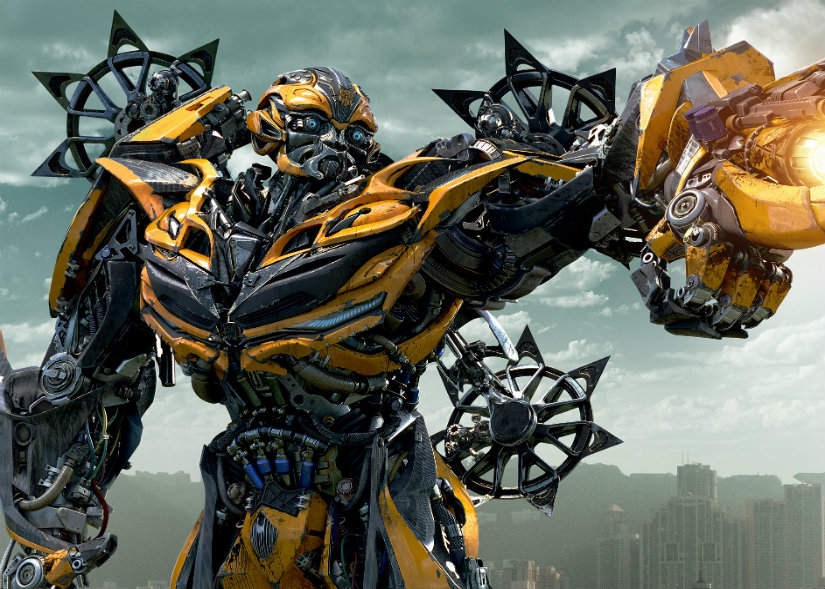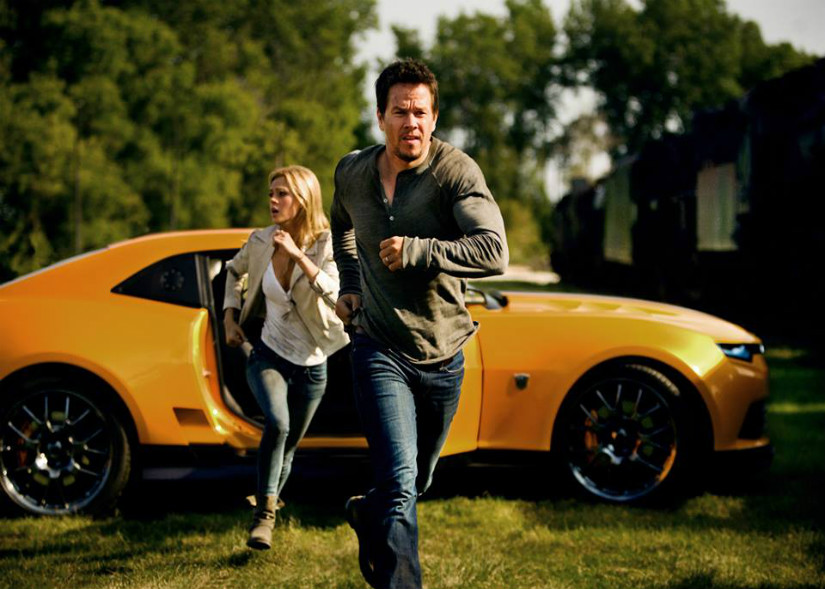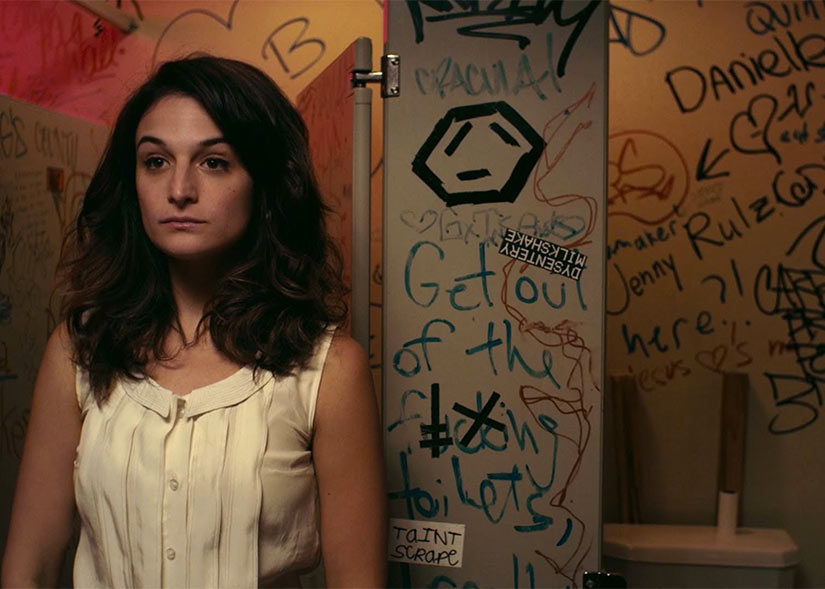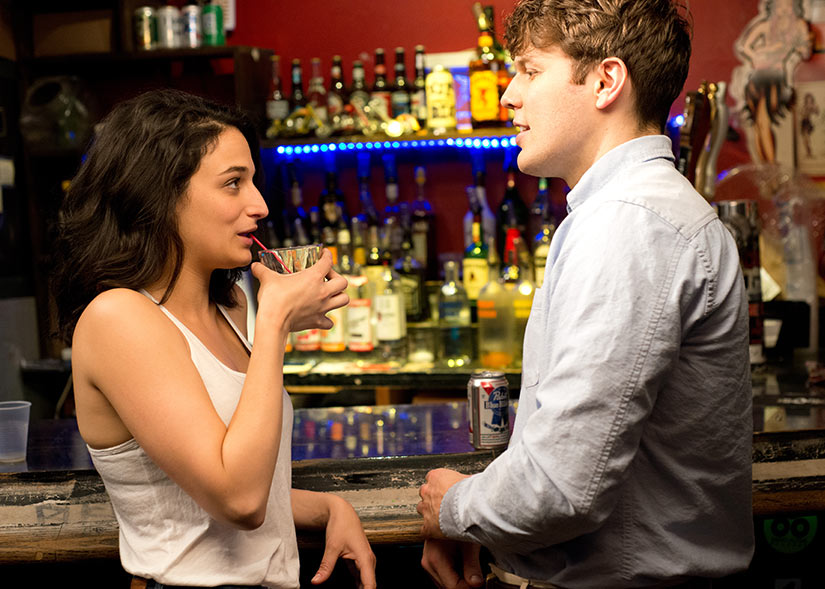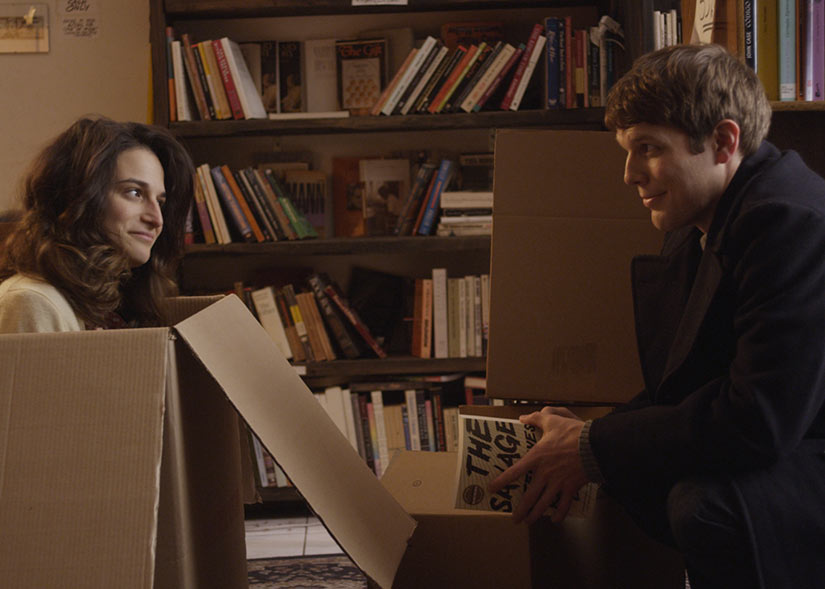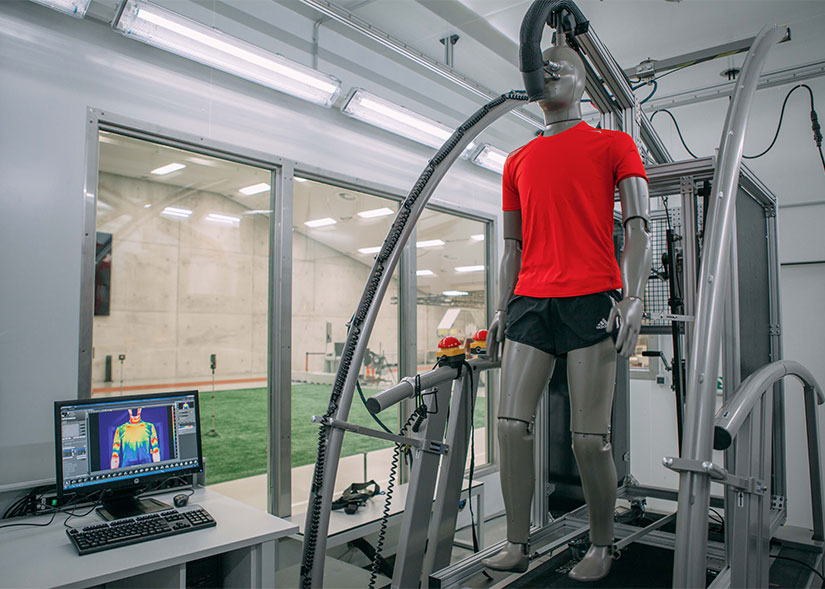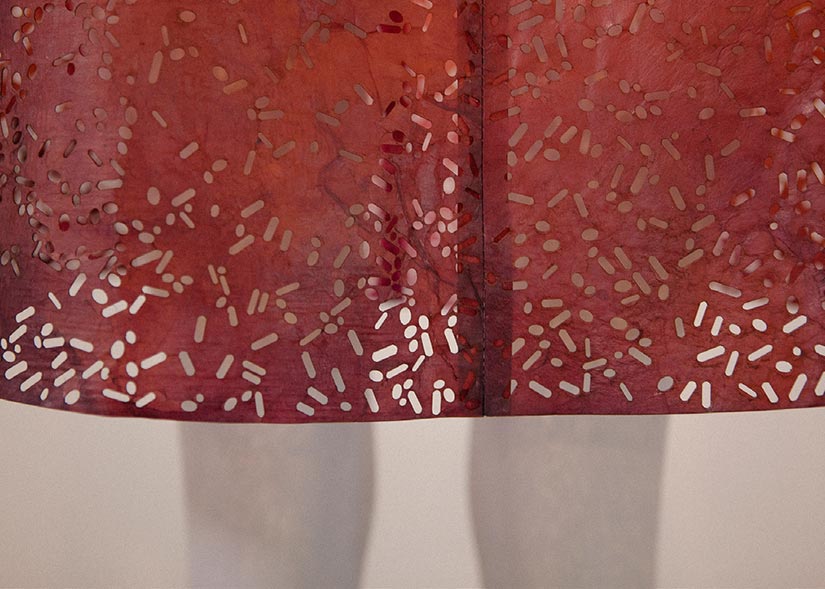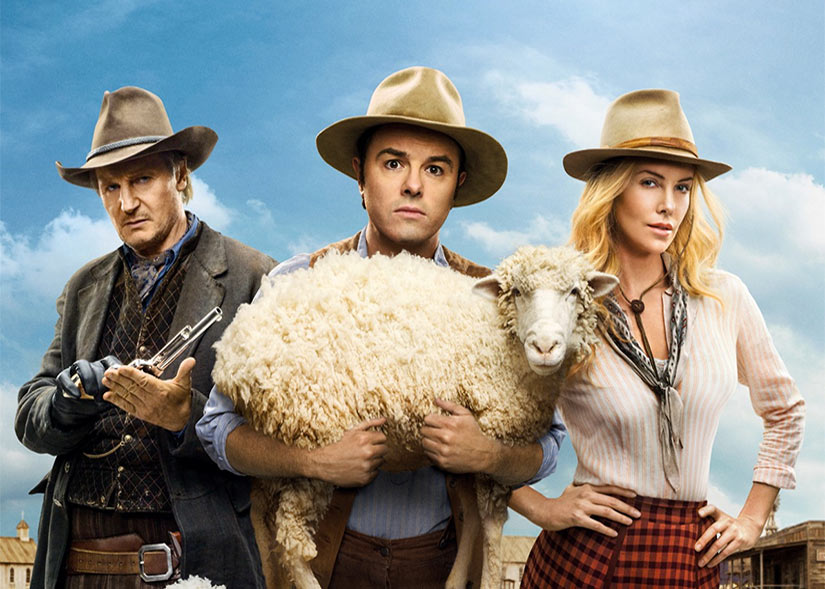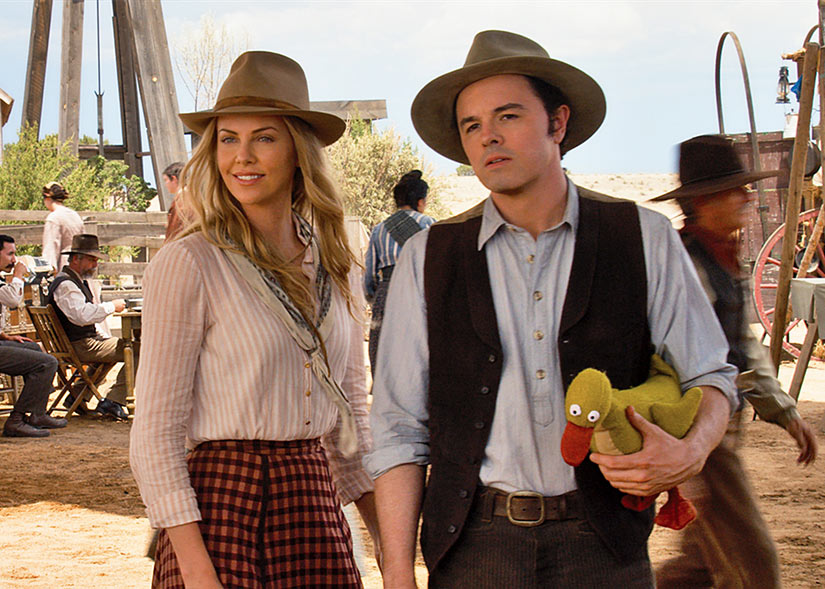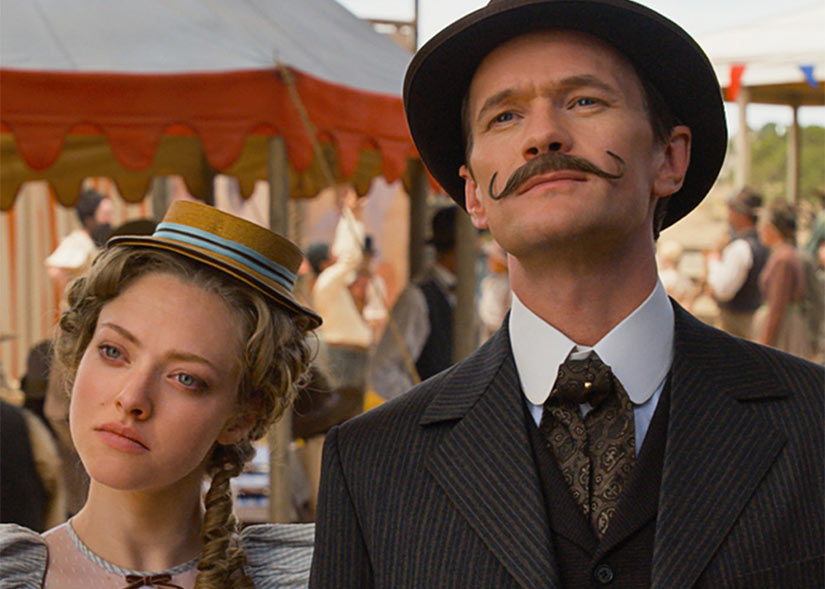RH Review: The Lollapalooza Experience (2018)
After a long four-day weekend of countless live acts, underground after parties, and spending over a hundred dollars in Uber’s; it feels great to be in the AC recapping the Lollapalooza experience.
Arriving early on Thursday to see Valee was the perfect way to start off the festival. The energy during “Two 16’s” was insane. One person, who looked about 17, was screaming every lyric directly in my ear. If I wasn’t sure about the lyrics, I certainly am now. Also the photo below is legendary.
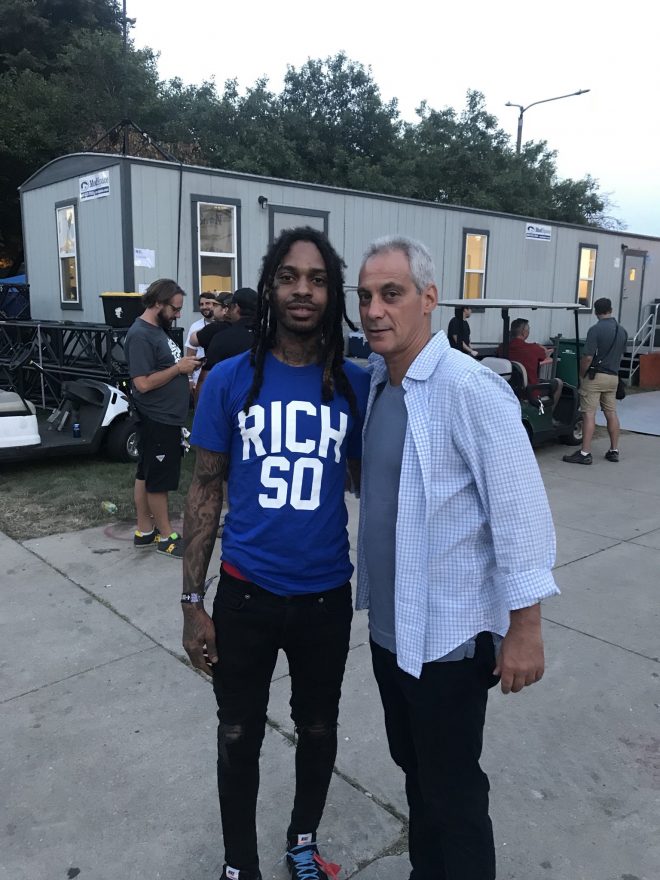
After helping tear down the temporary studio set up hosted by Closed Sessions at SoHo House, I found my way to the front of the Bud Light stage to see Travis Scott. With his new album Astroworld dropping an hour after his performance, the crowd was ridiculous. I had a difficult time recording any of the show due to the mosh pits.
Tyler The Creator and Post Malone were two notable acts on Friday. Post Malone receives a lot of hate in the hip-hop community, but his set was much better than expected. His voice sounded strong and it felt like the entire audience knew every word during his performance. I added a clip from Tyler The Creator’s set below to give an idea of the audience.
[iframe id="https://player.vimeo.com/video/283980497"]
Saturday was the least exciting day for me. I missed Femdot from sleeping in too long. Other than LL Cool J, the other acts I saw were disappointing. Lil Pump found a way to be worse than my already low expectations. GoldLink sounded as if he didn’t have enough material for an entire hour. The energy of the festival was redeemed during Hippie Sabotage’s performance at their after party. The two brothers from Sacramento killed it.
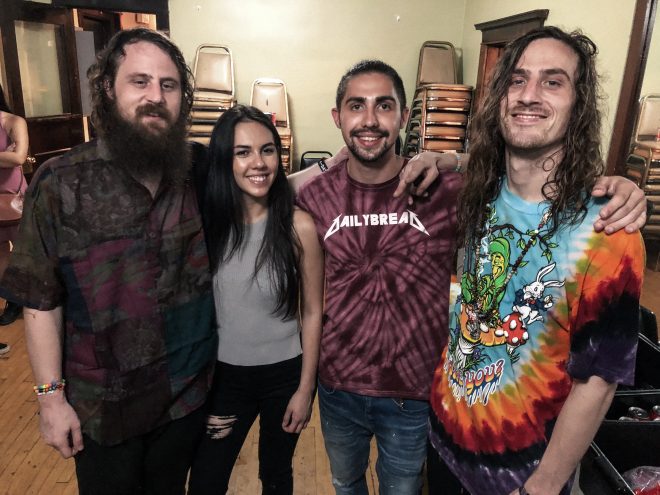
The final day ended strong. Knox Fortune had the most intimate show of the weekend. Their crowd was also the most mature I saw all weekend, with the median age above 18 for the first time. Lil Uzi Vert is a rock star. To think about seeing him at the Metro just two years ago, to playing at the main stage at Lolla is crazy. The crowd loved him.
[iframe id="https://player.vimeo.com/video/283980635"]
All in all, the weekend was a success. It’s almost hard to believe Lolla is over.
[Review] The Sheik
The wrestling community is one of the most loyal circles of fandom I've ever experienced. Regardless of the behind-the-scenes nature of predetermined match outcomes, wrestling is one of those things you can't ever shake off. Like most adults in their late-20s, I grew up watching WWF, but drifted away from the sport as I got older. Over the summer, however, I fell back into the swing of things thanks to the nostalgia offered through the WWE Network, and it's with this newfound sense of nostalgia over the old WWF that many others like myself have fallen back in love with our real-life superheroes of yesteryear.
One such man, Khosrow Vaziri, better known by his wrestling name The Iron Sheik, has found himself at the forefront of social media with his viral tweets that are both "works" that reflect his wrestling persona, but also "shoots" that may just reflect who he really is. The Sheik is an intimate look at Vaziri's career before, during, and after his time with the WWF. As anybody familiar with wrestling knows, it enters very dark territory, but thankfully, this is one story that has a bright and happy ending.
[youtube id="mFtjwz0J7ik"]
The Sheik
Director: Igal Hecht
Rating: N/A
Release Date: December 2nd, 2014 (VOD)
Like many documentaries, The Sheik follows a loose timeline that tracks Vaziri's career from his amateur days as part of Iran's army, a member of the Shah's personal bodyguards, and his success as an amateur wrestler and coach in the United States. However, it wasn't until his initial run with the WWF that Vaziri was elevated to new heights. Under the guise of The Iron Sheik, Vaziri played a pivotal role in not only shaping both Hulk Hogan's career and the trajectory of the WWF's future success, but also shaping the mainstream success and pop culture viability of pro wrestling.
The Sheik offers an inside look into Vaziri's life outside of wrestling, including his family life, his struggles with drug addiction, and the general strife most old wrestlers have faced once they stopped actively wrestling. The Sheik is the most in-depth look at arguably the WWF's biggest heels to ever step into the ring.
However, while the documentary does detail some of Vaziri's life outside of the squared circle, it doesn't go as in-depth as most documentaries would. This could be due to the fact that one of his managers, Jian Magen, played an active role in writing and shaping the documentary. This is fine, but obviously it doesn't allow the project to be an objective look at Vaziri's life and character; rather, it serves as a means of illuminating upon his life beyond what the public may know, but in a way that is promotional. Again, there's nothing wrong with it (and I had no problems with it), but some might want an unbiased account of Vaziri's history.
The Sheik still stands as the most comprehensive documentary of The Iron Sheik, and fans of the wrestler, whether it's due to nostalgic memories of him facing Hogan or more modern fans who know of him through his social media presence, will enjoy it thoroughly. It was great to see so many other wrestling icons, like The Rock, Mick Foley, Jake "The Snake" Roberts, Jim Ross, and others share some of their thoughts and memories about The Iron Sheik, but again, a little more in terms of insight and going beyond the surface level would have been more exciting and entertaining for fans.
[Review] Birdman or (The Unexpected Virtue of Ignorance)
In my line of work, I hear of dozens of new films each week. On the one hand, it's great to have an insider, early look at a lot of the films coming out in the calendar year. On the other hand, it takes away from the intrigue and spectacle that films used to have before I decided to follow this career path. It's rare, but every once in awhile, a film will seemingly come out of nowhere and retrieve those lost feelings of awe and wonder. Birdman or (The Unexpected Virtue of Ignorance) was that film for me.
In saying that, I subconsciously set a high bar walking into my screening of the film. Considering the cast and crew (Babel and Amores Perros writer/director Alejandro Gonzalez Inarritu, Michael Keaton, Edward Norton, Emma Stone, et al), how could I not? After a year full of festivals and amazing film premieres, would Birdman be able to rise above all of them and surpass my exceedingly high expectations? Spoiler alert: Yes and no.
[youtube id="xIxMMv_LD5Q"]
Birdman or (The Unexpected Virtue of Ignorance)
Director: Alejandro González Iñárritu
Rating: R
Release Date: October 24, 2014
Riggan Thomson (Michael Keaton) found success in the '90s portraying the superhero Birdman in a blockbuster franchise that is still remembered fondly to this day. Feeling artistically empty and desperate to affirm his talent as not only an actor but as an artist, Thomson is writing, directing, and starring in a Broadway play based on Raymond Chandler's short story, "What We Talk About When We Talk About Love." After the lead actor is viciously injured by a fallen stage light, Riggan implores his producer, Jake (Zach Galifianakis), to get Mike Shiner (Edward Norton), the most talented current Broadway actor. However, after Mike joins the cast, tensions rise between he and Riggan as control over the play ultimately falls out of Riggan's hands.
Through this, Riggan must also contend with the contentious relationship with his daughter, Sam (Emma Stone), a recovering addict fresh out of rehab, his relationship with girlfriend and co-star Lesley (Naomi Watts), the strong friendship with his ex-wife and Sam's mother, Sylvia (Amy Ryan), and a New York Times critic and close friend of Mike's who promises to bury the play in her review due to her perceptions of Riggan as a Hollywood hack simply extending his 15 minutes of fame. Of course, there's also Riggan's growing pangs of a midlife crisis breakdown and the eponymous Birdman manifesting itself within Riggan's psyche.
There are so many elements playing both in concert and conflicting one another in Birdman that it'll take multiple viewings to dissect and analyze the full depth of the film. For the sake of this review, I'll focus on the biggest and most apparent elements: the difference between theater and cinema and Birdman's attempt to create a dichotomy of the two and the dissection of art/entertainment. Birdman is screened to seem like it was all one long take with no edits (there are edits made through deception, i.e. dark shadows in corridors, etc.). This visual element gives the audience the notion that you are watching one long sprawling play about a cast of characters putting together a Broadway play. The characters themselves (both actors and supporting characters) always give off this notion of acting, creating the illusion that the characters are always "on stage," with lines delivered much like soliloquies found more within theater than in films.
The combination of the two may disarm viewers expecting a traditional film, and the effect may not carry the same esteem for everybody. Others may not like how much of the dialogue is delivered as if every actor had a spotlight shining on them as they stood upon a soap box and recounted personal, emotional stories about their characters. But for myself, somebody who has dedicated a growing number of years to analyzing and critiquing films, I absolutely loved Inarritu and cinematographer Emmanuel Lubezki's approach to Birdman. I'm a sucker for film visionaries that aren't scared to experiment with their craft. What's more, I think they truly pulled off creating the idea of Birdman, the film, being representative of a film of a play presented as a play through film.
What's more, it's hard to ignore the metafictional crux of the film of Michael Keaton playing the lead role, given his memorable performances as Batman during the early '90s. Without his past, would a film like Birdman even exist to this level? Probably not. Keaton truly is the heart and soul of the film, and not only does he knock it out of the park, each and every supporting actor from Norton to Stone to Ryan to Galifianakis help ensure Birdman reaches the levels Inarritu intended when putting the film together. Hell, even the jazz-influenced drum score by Antonio Sanchez helped ratchet up the faux-appearance of tightly-written improvisation.
Birdman or (The Unexpected Virtue of Ignorance) was everything I wanted it to be and more. Even as I write this, I'm making plans to view it for a second time. As the awards season begins and many highly-regarded films will be released into theaters for Academy Award consideration, Birdman currently flies above the potential of any film scheduled for release through the end of the year. However, its experimental nature might not be for everyone, and while it may collect a multitude of critic awards and Top Ten list considerations, I'll be disappointed (but unsurprised) if it doesn't capture the amount of Oscar nominations it should. For the average weekend moviegoer, if you want to see some of the year's best cinematic performances and watch the vision of one of Hollywood's true visionaries, take it upon yourselves to find a theater that is screening Birdman or (The Unexpected Virtue of Ignorance).
[Review] Happy Christmas
Mumblecore has been growing into prominence within the independent film scene in recent years thanks to a few notable filmmakers like Lena Dunham (Girls, Tiny Furniture), Jay and Mark Duplass (Jeff, Who Lives at Home), and Joe Swanberg (Drinking Buddies). It took awhile, but I eventually warmed up to the genre's focus on naturalism, whether it's due to the actors' improvised performances, the use of a loose outline rather than a traditional screenplay, or the presence of an actual film camera (16mm specifically for Happy Christmas) rather than a digital one. The aesthetic behind independent, low-budget films is the backbone of the genre, and it's surprising that it took me so long to better appreciate it.
Or perhaps it's because I was waiting for the right filmmaker, and that's where Swanberg comes in. Partially because of his talents as a filmmaker, partially because of the stories he wants to tell, or partially because he is now a Chicagoan, there's something special about Swanberg's films that I'm drawn to. Read on as I find the words to help express why I felt so strongly about Happy Christmas.
[youtube id="7VaaYbraOrQ"]
Happy Christmas
Director: Joe Swanberg
Rating: PG-13
Release Date: June 23, 2014 (VOD)
Following a breakup, 20-something Jenny (Anna Kendrick) decides to move to Chicago and live with her older brother, Jeff (Swanberg), his wife Kelly (Melanie Lynskey), and their newborn son, Jude (Swanberg's actual son). As Jenny attempts to rediscover her identity, whether it's simply by hanging out with her friend Carson (Dunham) or exploring a new relationship with the family babysitter, Kevin (Mark Webber), her presence has an undeniable impact on Jeff and Kelly's lives... for better or for worse.
However, whereas most films may take the easy "self-discovery/identity" route with a typical narrative structure with their protagonists, Happy Christmas defers from what's become expected and standard in a narrative film. Without spoiling the film, I'd say the focus isn't directly on Jenny and her story (despite her being the main character), but how her presence shapes and develops Kelly's character. Kelly's story is much more intriguing than Jenny's as she attempts to re-balance her artistic leanings with her newfound responsibilities as a new mother, but it's through Jenny's scope that we're able to see how those two seemingly opposite spectrums can work together.
Happy Christmas shares a universal appeal, but has an extra special element that Chicagoans can appreciate a little more. As a 20-something myself with friends starting their own families, I can understand and empathize (a bit) with finding the compromise between work and family, which is something I think most Chicagoans feel given the "grind" and "hustle" the city offer, combined with the "Midwestern family values" we inherently share. Given the indie, low-budget nature of the film, Happy Christmas also feels like a passion project made with friends, to the point where I was actually shocked to see a casual acquaintance of mine as an extra in the film (Erin, you really do deserve an award for being Best Stander).
It's because of Swanberg's ability to create a small film with a small focus with a 16mm camera that further accentuates that direction that helps make Happy Christmas work so well. The actors individually have their own levels of success both in and out of the film community, most notably Kendrick's growing star in Hollywood and Dunham's large success with Girls, yet they're still able to embody these roles and characters that allow you to truly believe their characters and make you think, "Yeah... I could see myself grabbing a beer with them." Granted, this is what an actor's job is to do, but when was the last time you watched a Tom Cruise or Brad Pitt film and realistically envisioned yourself holding an actual, insightful conversation with them? Again, this comes down to Swanberg's whole vision for his projects that makes audiences truly connect with his characters. And it's because of this singular ability that I personally am so drawn to his films.
The big question, then, is how general audiences will receive Happy Christmas. As somebody who finds joy in analyzing and critiquing films, there's so much going on with Happy Christmas, both narratively and technically/cinematically, that I loved just focusing on and breaking apart. However, for somebody who's looking for a weekend rental or an impulse purchase, you might be expecting something different. Yes, there are legitimately funny scenes in Happy Christmas, but you won't be slapping your knees and gasping for air. Instead, I hope anybody that watches Happy Christmas can appreciate the film for what it is: an honest look at familial relationships that can be both funny and depressing... sometimes even at the same time.
[Review] Transformers: Age of Extinction
The Transformers films and I have a sordid past. While I'm not a big fan of the property (my only knowledge of the series comes from a slim memory of the Beast Wars/Beast Machines cartoons on Fox Kids), the first Transformers was my initial break into nerd films and their hype machines. It was the first film I bought a poster for, the first film where I had watched every trailer, and the first film where I anticipated a sequel. While others walked away confused, I loved the heck out of it. But two dubious sequels later, the Transformers name doesn't garner as much good will as it used to.
But when the first trailer for Transformers: Age of Extinction released, I let myself get wrapped up in the hype machine again. Regardless of their overall quality, the Transformers series is always a visual feast. I knew going in that even if I didn't like what anyone was saying or doing, it was going to look super rad.
Thankfully, if all you're looking for is slick looking action and shiny things without caring whether or not Transformers has things like "plot," "pacing," or "characters" than you're going to have a great time. Just be willing to sit for three hours.
[youtube id="S30VkLn5a2o" autoplay="no"]
Transformers: Age of Extinction
Director: Michael Bay
Rating: PG-13
Release Date: June 27, 2014
Transformers: Age of Extinction takes place several years after the events of the third film, Dark of the Moon. Gone are the plucky Sam Witwicky and his family, and in their place we have a small town inventor from "Texas, USA (Yes, that's really the location)" Cade Yeager (Mark Wahlberg), his daughter whose name I forget (Nicola Peltz), and her boyfriend whose Irish but lives in Texas who also races cars for some reason (Jack Reynor). Because of the destruction in Chicago during the Autobots and Decepticons' last battle, the US government, headed by Attinger (Kelsey Grammer) has begun hunting down all the robots for their materials. When Cade stumbles upon Optimus, a larger and more befuddling plot is revealed. To go into further detail than that, I'd have to use the entire length of this review.
If it seems like I'm being overtly harsh on Trans4mers from the get go, that's because it hardly even cares about itself. I'll be blunt here. While not as bad as Transformers: Revenge of the Fallen, Age of Extinction is a shoddy mess of a final product. It's like Bay took criticisms of the first few films to heart and fixed some problems, but then decided to add a whole host of brand new issues. It's just haphazardly thrown together into a Frankenstein's monster of focus group decisions, corporate branding, cartoon fandom, and toy sales. To be fair, that's technically what the rest of the series is, but for some reason it's far more noticeable here. The tone is more cynical than before.
The "plot" is just several thousand locations thrown around aimlessly. It's chaotic and almost entirely random how we'll go from an Alien spaceship to Optimus Prime and Cade having a little chat about the struggles of parenting. The more interesting aspect of all of these locations, however, is how "Anti-American" the entire film feels. I'm not sure if it's intentional or not, but underneath the overt need to please its overseas Chinese audience, we have a wonderful film where America is the bad guy. Taking the same eschewed American Dream mentality from Bay's Pain & Gain, Kelsey Grammer's Attinger (and his "I will protect America" rants) makes America the bad guy. When you contrast the final shot of Dark of the Moon with the American flag billowing proudly in the background to Attinger's speech about creating American products to save American lives in the middle of a Chinese factory, it's almost as if Bay is giving a little wink to let you know he's in on the joke.
But that'd be giving Age of Extinction too much credit. One of the biggest issues audiences have had with the last few films are the humans. That's exactly the same issue here. In fact, Extinction seems to think throwing more humans in there will fix the problem. Mark Wahlberg does have the charisma of a leading man, but he's totally out of place as a genius, yet super ripped inventor. Nicola Peltz is there to be window dressing as her scantily clad self slow motion runs from one dangerous situation to another (which gets all the creepier when the film makes a point to emphasize she's a minor), Jack Reynor comes off as a total jerk when he's supposed to be the "cocky guy" type, Stanley Tucci tries to make it work but comes across as goofy, and Kelsey Grammer has played better villains. With Grammer, we got more Sideshow Mel than Sideshow Bob. Okay so the humans are bad, but what about the Transformers? They have to be cool, right? Robot dinosaurs are cool, huh?
The designs of the Transformers themselves are much slicker than in series past, and go very well with the film's darker tone. And although he's spitting mostly nonsense, Peter Cullen brings a heft to Optimus Prime that no one else can. In fact, Cullen's voice work is so great, I kind of want another Transformers film just to hear him scream "I'll kill you!" again. The weird standout, however, is John Goodman as the newest Autobot, Hound. Replacing the human comic relief character, Hound is a one-liner spewing machine. This would've been fine had any of those one liners actually worked. Every scene he's in he says about three thousand words, and by hour three of this whole debacle I was hoping he'd bite the bullet. Oh, that's right. Transformers: Age of Extinction is a bloated two hours and 45 minutes.
Remember how I mentioned Age of Extinction seemed like a cynical sequel? That also goes with the technical stuff. Bay is a maestro of explosions and I was expecting some good looking ones here, but there's an odd hiccup with a lot of them. It might've been the switch to IMAX cameras, but there are a few golden spots that undergo a dip in quality when action is blurred (as Bay didn't shoot full scenes with IMAX and instead focused on a few key shots). And as good as the action might look, it's very hard to stay invested when the last 45 minutes are a nonstop action sequence featuring characters you don't care about. When you think the film's over (and it even gives you a suitable ending), it just keeps on going. Dinobots and proper film editing be damned, Age of Extinction did not need to be this long.
At the end of the day, Transformers: Age of Extinction is yet another Transformers film we'll all see. And it should be the last. For fans, they'll enjoy the darker tone, will accept that an alien bounty hunter who hates Earth is also a Lamborghini, and will get a kick out of the dinosaur robots when the rest of us want to go home already.
Transformers: Age of Extinction will truly test your mettle. Ask yourself a few questions. How valuable is your time? How important is that ten or fifteen dollars you'd spend on a ticket? Are cool cars enough for you?
It truly is the "age of extinction" for the Transformers series. Let's bury it once and for all.
[Review] Obvious Child
For whatever stupid reason, there was this general stigma in mainstream entertainment that women weren't funny. Obviously, this was just some stupid misconception as iconic comediennes like Roseanne, Ellen, Lucille Ball, Carol Burnett, and other female luminaries were just as funny (if not more so!) than their male counterparts. Nevertheless, this stigma floated around for the longest time, and it wasn't until fairly recently that people realized that women are, in fact, funny. Thanks to shows and films like 30 Rock, Parks and Recreation, and Bridesmaids, we have more contemporary examples that the ladies can bring in the laughs and the money the same way the guys have been.
I say all of this as a preface for my review of Obvious Child because I feel that Gillian Robespierre's film is just the type of indie comedy we need more of that transcends who's in the lead, male or female. Obviously, the success of Obvious Child is well-balanced thanks to Jenny Slate's performance, but I'll get more into that later. Simply put: If you find a theater playing Obvious Child, I highly recommend checking it out. Now let me attempt to explain why.
[youtube id="r2GN3wdfqbA"]
Obvious Child
Director: Gillian Robespierre
Rating: PG-13
Release Date: June 6, 2014
Donna Stern (Slate) is an aspiring stand-up comic who is not afraid to share a bit too much of her life on stage in the name of humor. Unfortunately, this causes her boyfriend to break up with her just weeks before Valentine's Day. To make matters worse, she soon gets laid off from her book store job due to the store's closing. One night, she forms a connection with a man at a bar, Max (Jake Lacy), who is Donna's complete opposite. Their night of revelry ends with Donna becoming pregnant, forcing her to make a life-affirming decision that she may or may not be ready to make.
In recent memory, Juno stands out as the indie darling that took something like unwanted pregnancies and made it the focal point of a whimsical, quirky dramedy. Whether you're a fan of Juno or not, it represented a modern film that allowed us to take a look at a somewhat social taboo such as unwanted pregnancies and made us truly ponder the topic without getting too political or preachy. However, whereas Juno hid behind irreverent non-sequiturs and pop-culture references out the wazoo, Obvious Child forms a more realistic and human connection between its subject matter and its audience.
As I mentioned previously, this is thanks to the combination of writer/director Robespierre's vision and Slate's performance. Slate evokes an everywoman charm that I think anybody can relate to. Obviously, I'm not a woman, but I feel that some of the conversations and jokes Donna has throughout the film is similar to the types of things my friends and I talk about, no matter how awful or disgusting they are. In a way, Obvious Child shares the same ethos that Judd Apatow films do, but better grounded and more human.
The downside to this connection, unfortunately, is that the characters both surrounding and opposite the lead, more specifically Lacy's Max, feels one-dimensional and not a fully-realized character, but someone who's only meant to serve as a foil/opposite to Slate's Donna. Here we have the rambunctious, wild, emotionally-broken Donna set opposite from the well-put together, straight card Max. It's a character trope that exists in almost all comedies, and it's one that I wish the genre will move away from.
Regardless, I think Obvious Child is one of the better films I've seen this year. Jenny Slate's performance in the film shows so much promise from both a comedic and dramatic perspective that I can imagine (and hope!) she'll eventually find herself in the spotlight of successful and talented comediennes on the same vein as the aforementioned actresses in my introduction. Writer/director Gillian Robespierre, meanwhile, has a knack for capturing not only the human side of comedy, but the comedic side of humanity, and I can't wait to see what she does next.
[Review] The Next Black
The Next Black introduces us to the Brave New World of fashion, placing the garment industry in a futuristic context that most of us growing up with stores like H&M or Zara never thought would be possible. The documentary comes at the viewer in a minimalist, straight-forward and tsunami-like manner, similarly to the clothing industry itself, which holds promises of one day wearing the surface of computers- washable tech, soft tech, and silky tech - on our bodies.
The documentary opens up by explaining that textiles today still cover bodies and indicate social code. However, fusing fashion and technology introduces us to a drastic transformation in textiles- to a machine that alters the way we dress, or a factory disguised as a garment. While this idea seems too cyborg-like or OD science fiction for some, wearable tech is going to make its way to the market sooner or later, and scientists collaborating with designers are ready to tackle the breakthrough. While few interviewees are featured in this documentary, each is an expert in his or her field, and effectively hits viewers with numerous facts about the quickly transforming world of fashion.
[youtube id="VuPzdpudwhU"]
The Next Black
Director: Phil Marthinsen
Rating: N/A
Release Date: June 3, 2014 (VOD)
The New Black brings to the table the concept of smart clothing. In Germany, Adidas has figured out how to monitor athletes’ performance using real time, equipping their clothing with heart rate sensors and working on adding respiration sensors and other features. Elite sportswear is still in the “bacteria” stage, as is most wearable tech, and is focused on developing smaller, faster, and smarter platforms. The concept of bacteria is also introduced to the viewer in a more literal and concrete way, with The New Black suggesting that innovations can take textiles to the next level by embracing nature and growing a dress in a vat of liquid using microorganisms. This process is described as being much closer to brewing beer or baking than one of fashion, but can move efficiently from the lab to the market and also reduce waste. It opens up a broad range of possibilities for what fashion will be able to do for us in the future, potentially being able to protect our skin or even provide us with nutrients.
Almost more important than introducing possibilities stemming from the fusion of science, technology, and fashion, the documentary calls out the concept of “fast fashion,” which is fashion that’s mass-produced, has a fixed price, and is standardly sized. We often blame unethical brands and polluting factories for fast fashion dominating our culture, but The Next Black stresses that the most important shift in textiles rides on the shoulders of consumers, who critically need to come to terms with their place in the garment industry. It’s important for us to be cognizant of the fact that relentless production and consumption stems from companies needing to satisfy our ever-changing desires and needs. Change derives from buying less clothing, but also from caring about the clothes we already own. By being proactive with what we wear, we become proactive with our product, and the tangible experience allows us to develop a more emotional connection with clothing, changing the future of fashion on both an intimate and a grand scale.
The Next Black gives us this sneak peak into what the future holds for fashion in a fitting minimalistic and informative manner, especially considering how dense the reality of tech innovation is for generations growing up deciphering dial-up Internet. Going from having dial-up to having potentially digital skin is not a concept that can be taken lightly, especially by an age group that is still the beta for such drastic changes. While the synthesis of textiles, innovative technology and science offers what seems to be hopeful change in the world where fashion meets futuristic function, such extreme transformations call for a large amount of unknowns. We must be on our game as consumers to avoid being passive with these shifts, in order to enter this Brave New World on alert and fully guarded.
[Review] A Million Ways to Die in the West
Seth MacFarlane made a name for himself with his various TV outings, practically single-handedly overtaking Fox's Sunday night TV programming with Family Guy, American Dad!, and The Cleveland Show. While each show has its fans, the "MacFarlane" brand of humor has, at times, run long in the tooth. What was once edgy and a legitimate alternative to The Simpsons (paired with the show's decline in quality over recent years) became stale, uninteresting, and too sophomoric for its own good.
2012's Ted, MacFarlane's film debut, was a test to see whether or not the writer/director/actor's brand of humor could translate not only to a live-action setting, but also sustain a feature length film. Almost $550m and generally positive reviews later, the answer was yes. To follow up, MacFarlane's comedy/western A Million Ways to Die in the West is grounded as much to reality as a MacFarlane project can be. However, did luck strike twice for MacFarlane, or did A Million Ways to Die in the West suffer the sophomore slump?
[youtube id="QG4rSUpB8RA"]
A Million Ways to Die in the West
Director: Seth MacFarlane
Rating: R
Release Date: May 30, 2014
Albert Stark (Seth MacFarlane) is a sheep farmer living in 19th Century Arizona where there are "a million ways to die." Out of the myriad ways in which people can die, one of the most common ways is during a duel. Rather than face another man in a duel, he withdraws, causing his girlfriend, Louise (Amanda Seyfried), to leave him for another man, the mustachioed Foy (Neil Patrick Harris). Down on his luck, he befriends a new woman in town, Anna (Charlize Theron).
While their friendship begins as Albert uses her to make Louise jealous and to increase his masculinity, the two inevitably fall in love with one another. Unbeknownst to Albert, however, is that Anna is married to Clinch Leatherwood (Liam Neeson), the most notorious gunslinger in the West. When Clinch discovers Anna has been galavanting around town with another man, Albert must do what he can to survive an encounter with him or else face a gruesome death.
As a fan of Seth MacFarlane, I say this as bluntly as possible: MacFarlane's work is very gimmicky and one-note: Ted featured a talking teddy bear, Family Guy lampoons the dimwitted husband/nuclear family thematic, American Dad! follows a Conservative paternal figure, etc. A Million Ways to Die in the West beats its audiences over the head with the characters' awareness to its setting. Sometimes, the jokes work; often, they don't. While some of the perilous dangers that the film's characters face are humorous, they're really nothing more than forgettable sight gags. However, that's not to say that there aren't real jokes in the film; far from it. Rather, you'll more than likely end up chuckling over the occasional joke rather than gasping for air. There's a lot of toilet humor (both literally and figuratively) in A Million Ways to Die in the West, so if you're into poop and pee jokes, you're in luck.
Whereas Ted felt like a natural progression from MacFarlane's Family Guy, A Million Ways to Die in the West feels like nothing more than a long episode set in the 19th Century West. The soundtrack will sound familiar to Family Guy fans, as the showtunes-esque score is very akin to the one MacFarlane uses on the show. There's even a long musical number that was one of the highlights of the film, thanks to the participation from Harris. In fact, if there could only be one highlight for the film, it's the stellar cast that MacFarlane put together.
While MacFarlane makes for a promising lead, his performance shows promise for future films, but doesn't quite hit the highs you expect. Thankfully, the ensemble cast more than does its part to keep the film afloat. The supporting cast of Sarah Silverman, Harris, Neeson, and Giovanni Ribisi are enough to bolster MacFarlane's subpar performance. Naturally, every scene in which Harris' Foye plays a primary role steals the spotlight away from any other character, whether it's from the aforementioned musical number, his character's subtle quirks and ticks, or his sense of physical comedy. To a slightly lesser degree, Silverman's naive Rose, a prostitute, allows MacFarlane a natural way to punch in edgy sex jokes; what would a MacFarlane project be without a handful of semen jokes, anyways?
A Million Ways to Die in the West showed promise with its early trailers. However, it really is nothing more than a long wild, wild West-set episode of Family Guy. It has its moments, and the supporting cast brings in as much as they can, but the film doesn't bring as many laughs as you'd like. Sure, you'll get the mustache song stuck in your head, you'll never be able to look at Neil Patrick Harris the same again, and you'll geek out with your friends over the pop culture easter eggs MacFarlane threw into the film, but they don't add up enough to cover an otherwise disappointing experience. Ultimately, A Million Ways to Die in the West isn't able to escape the one-note joke of its setting. However, there's enough present in the film to keep expectations positive for MacFarlane's next film, whenever that may come about.



